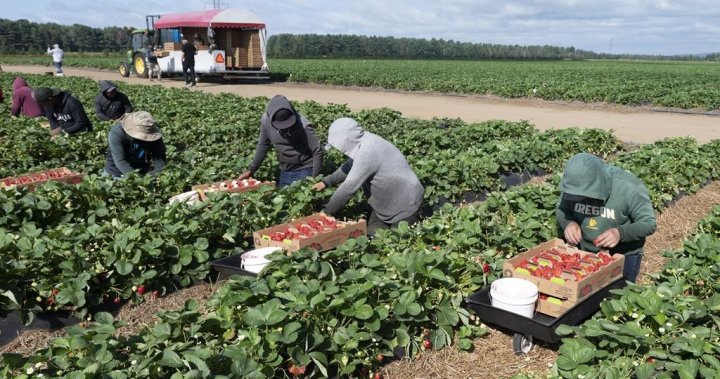Ontario’s Workplace Safety and Insurance Board (WSIB) is making changes to how it compensates injured migrant workers. Currently, the WSIB pays workers 85% of their salary if they are hurt on the job and unable to return to that role, but deducts money earned from other work. This practice is seen as unfair, as many migrant workers who return home after an injury earn far less in their countries than they would working full-time in Ontario. WSIB president Jeff Lang acknowledged this unfair treatment and is now reviewing 50 claims dating back to 2007, with plans to pay out retroactive compensation amounting to millions of dollars.
In the past, four injured migrant workers took their case to the Workplace Safety and Insurance Appeals Tribunal, arguing for better compensation. In September, the tribunal ruled that the WSIB had been wrong in assuming seasonal migrant workers were only eligible for 12 weeks of income-loss compensation under the Seasonal Agricultural Worker Program if they were injured. The tribunal highlighted that the WSIB’s loss-of-earnings provisions did not consider the individual circumstances of the workers, such as their recovery from injury or ability to find work. Consequently, it was deemed inappropriate to limit long-term loss of earnings benefits to 12 weeks without taking into account the workers’ actual local labor market.
Despite the tribunal’s ruling, the WSIB had already begun reviewing its interpretation of the legislation. Lang stated that the organization was already on a path to address the issue, but the tribunal’s decision reaffirmed their commitment to fixing the problem. Moving forward, the WSIB aims to treat all injured workers in Ontario equally, with dignity, respect, and compassion. Lang emphasized the importance of ensuring that workers who are injured while working in Ontario, including migrant workers, receive fair and just compensation for their injuries or illnesses.
The changes within the WSIB are a significant step towards rectifying the unfair treatment of injured migrant workers in Ontario. By revising their compensation policies to consider the unique circumstances of each worker, the WSIB is working towards a more just and equitable system for all injured individuals. This move not only rectifies past injustices but also sets a precedent for how injured workers, including migrant workers, should be treated in the future.
It is clear that the rights and welfare of all workers, regardless of their immigration status, must be protected when it comes to compensation for workplace injuries. The WSIB’s commitment to reviewing past claims and providing retroactive compensation demonstrates a recognition of the importance of treating all workers fairly and ensuring that they are properly compensated for their injuries. Moving forward, it will be crucial for the WSIB to continue to prioritize the needs and rights of injured workers, including migrant workers, to ensure a more just and equitable compensation system for all.


